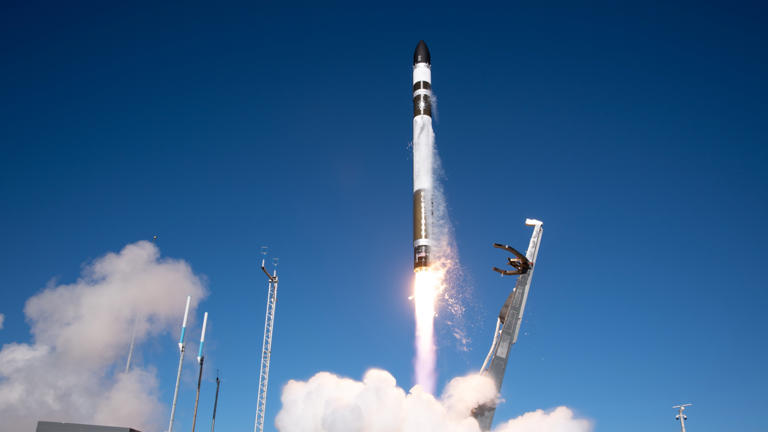Astroscale’s ADRAS-J satellite is scheduled to lift atop an Electron rocket from Rocket Lab‘s New Zealand launch site today at 9:52 a.m. EST (1452 GMT; 3:52 a.m. local New Zealand time on Feb. 19).
Watch it live here at Space.com, courtesy of Rocket Lab, or directly via the company. Coverage will begin about 20 minutes before liftoff.
Related: The Kessler Syndrome and the space junk problem

ADRAS-J stands for “Active Debris Removal by Astroscale-Japan.” True to its name, the satellite will try to make progress in humanity’s fight against space junk, a problem that continues to grow as we launch more and more satellites to orbit.
“The mission is the first phase of an orbital debris removal program, and during this phase ADRAS-J is designed to test technologies and operations for approaching and monitoring debris objects,” Rocket Lab representatives wrote in a mission description.
The 330-pound (150 kilograms) ADRAS-J will also deliver “data that will assist in removing [space junk], to ensure the sustainable use of space for future generations,” they added.
Such work is a key focus for Astroscale, which was founded in 2013 and has subsidiaries in the United Kingdom, the United States, France and Israel.
In 2021, for example, the company launched a demonstration mission called ELSA-d, which captured a piece of simulated debris in orbit using a magnetic system. And in 2026, Astroscale plans to capture and remove two defunct British satellites from orbit, on a mission called COSMIC (“Cleaning Outer Space Mission through Innovative Capture”).
Related: 6 types of objects that could cause space debris apocalypse
If all goes according to plan today, the Electron will deploy ADRAS-J about 373 miles (600 kilometers) above Earth 64.5 minutes after liftoff. That’s the orbital neighborhood occupied by ADRAS-J’s target: the upper stage of the Japanese H-2A rocket that launched the GOSAT Earth observation satellite in 2009.
“ADRAS-J will fly around the stage, 11 meters long and four meters in diameter [36 by 13 feet], inspecting it with cameras,” Rocket Lab wrote in the mission description. “After deployment from Electron, Astroscale’s full mission will take between three and six months to complete.”
“On Closer Inspection” will be Rocket Lab’s 44th mission overall and its second of 2024. On this year’s previous flight, which launched Jan. 31, Rocket Lab recovered the Electron’s first stage from the sea, as part of its ongoing effort to make the booster reusable. There will not be a rocket recovery on today’s mission, Rocket Lab representatives said.